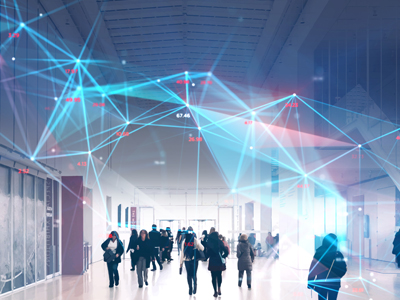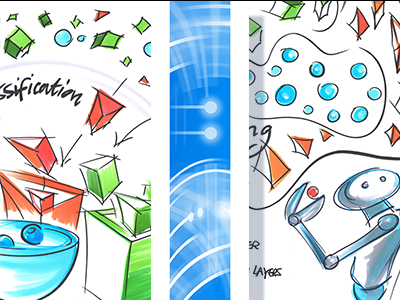Overview
Learn about the elements of AI, machine learning and computer vision. Discover the open-source AI tools, and hidden AI gems. Learn how to play with architectural design data using freely available AI model.
Are you navigating through the maze of AI discussions in everyday conversations? Do you feel overwhelmed and find it challenging to keep up with the constant flow of AI news and hype? Or perhaps you are enthusiastic about AI and its transformative power in design practices. This course will shed light on the science behind the most popular AI tools and models.
Are you an architect concerned about the potential impact of AI on your role? If you're eager to upskill, this course is designed to help you manage expectations and enhance your skills, ensuring greater job competency in the evolving landscape of design, data and AI.
The course goes beyond introducing AI as merely a tool but presents a new methodology for scientific design thinking. The course material gives you a vision on how to adjust your skills for a more secure job market competency.
The content of the course is specifically suitable for architects in practice or architectural students searching for something outside of the architecture field, possibly gaining new skills in programming and AI to fit into more diverse job opportunities.
The learning journey starts with learning about the history of AI and understanding machine learning as the science behind the AI technology. Further, the focus is established on computer vision as the “eye of AI” within the domain of architectural design. You will learn about the most prominent machine learning approaches in theory and in coding practice. You practice machine learning by using Python programming notebooks and exploring architectural design datasets. You will learn how to use AI to visualize your design data and upgrade your design storytelling.
You will learn how to search for reliable content including data and AI models in the overwhelming landscape of opensource AI. You will be introduced to licence-free “backstage” AI by going behind the main-stream glossy AI products.
You will also be introduced to algorithmic and data-driven thinking, data patterns, and the transformative power of learning systems. Hands-on experience with Python programming is included in the course. The assessments will include multiple choice quizzes, written text, and a brief machine learning coding project that combines theory with real-world application and data practices.
What You'll Learn
- Explain machine learning as a science behind AI technology.
- Describe what computer vision is and how it is positioned with respect to AI technology.
- Recognise some applications of computer vision in architectural design and engineering.
- Learn how and where to find data related to the built environment.
- Learn how to re-think design as a data story telling.
- Gain hands-on experience of Python programming and using relevant libraries to conduct a small machine learning project with real data.
Quote from Learners
"It is a well-structured, thoroughly documented, and highly informative course that helps build AI fundamentals for architectural implementation. The instructors have done an excellent job in organizing the course, starting from a very basic level." - Gautam Bhardwaj, Architect from India
Details
Course Syllabus
Module 1: AI Knowledge: Part 1
In the first week we cover the elements of AI knowledge to lay the foundation for the following weeks. The learners are introduced to the Python programming as this is the main AI playground to start with real AI project. Week 1 includes:
- AI definition
- Machine learning definition
- Data Society
- DIKW pyramid
- Data Technicalities
- AI modalities
Module 2: AI Knowledge: Part 2
In the second week we go deeper in the AI knowledge, we reveal the technicality behind the basic AI terms and review the process of how AI is built. The topics consist of:
- Building AI
- Model
- Learning Algorithms
- Training
- Testing
- Deployment
Module 3: Comprehension - Part 1
The third week focuses on hands-on machine learning projects starting with the supervised learning example in a real-life classification project with an application of architectural engineering. The material cover the following subjects:
- Backstage AI
- Foundation Models
- Supervised Learning
- Computer Vision
- Image data
Module 4: Module 4: Comprehension - Part 2
In week 4, we continue with machine learning project on floorplan data using in-house developed AI model. The topics covered in this week are listed as
- Customized AI Model
- Unsupervised Learning
- Topological data
- Data Visualisation using AI
Qualifications
Chartered Engineering Competences
All our online courses and programs have been matched to the competences determined by KIVI’s Competence Structure, a common frame of reference for everyone, across all disciplines, levels and roles.
These competences apply to this course:
- A1: Extend your theoretical knowledge of new and advancing technologies.
- B2: Conduct appropriate research, and undertake design and development of new and creative engineering solutions.
Admission
This is a Massive Open Online Course (MOOC) that runs on EdX.
The course is an introductory course to AI, so there are no prerequisites.


